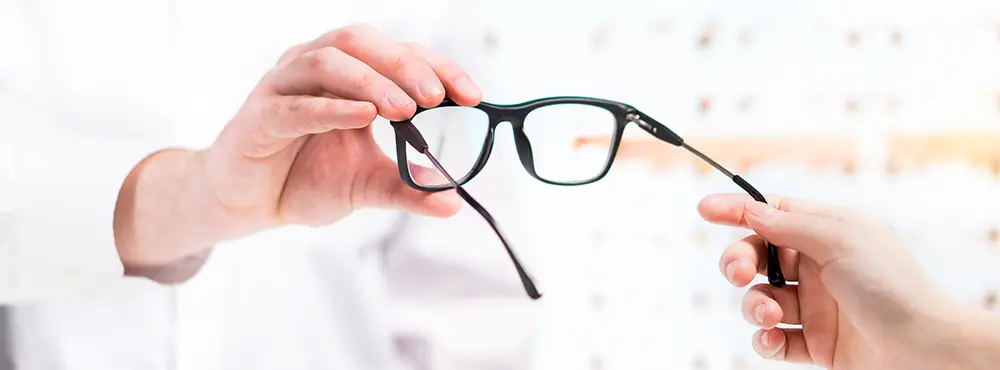Understanding the frame measurements of your glasses is essential as this will affect how the glasses fit on your face. If your glasses don't fit properly on your face, they may slide off frequently, resulting in them not aligning correctly with the centre of your eyes. This misalignment can cause blurry vision which can then lead to discomfort and headaches as well as having to strain your eyes more.
Glasses are made to fit a generalised measurement of most people’s faces. You will find that some styles of glasses come in a smaller sized frame for smaller or slimmer faces. Our handy guide will help you find the perfect frames with the best lenses to fit your face.
How are glasses measurements usually written?
The measurement of your prescription glasses is shown as three numbers which will usually look something like this:
54 - 18 - 137
Where can I find the measurements of my glasses?
If you open your glasses up, you'll find the measurements of your glasses on the inside of one of the temple arms. This will be shown in three numbers as seen in the example below:
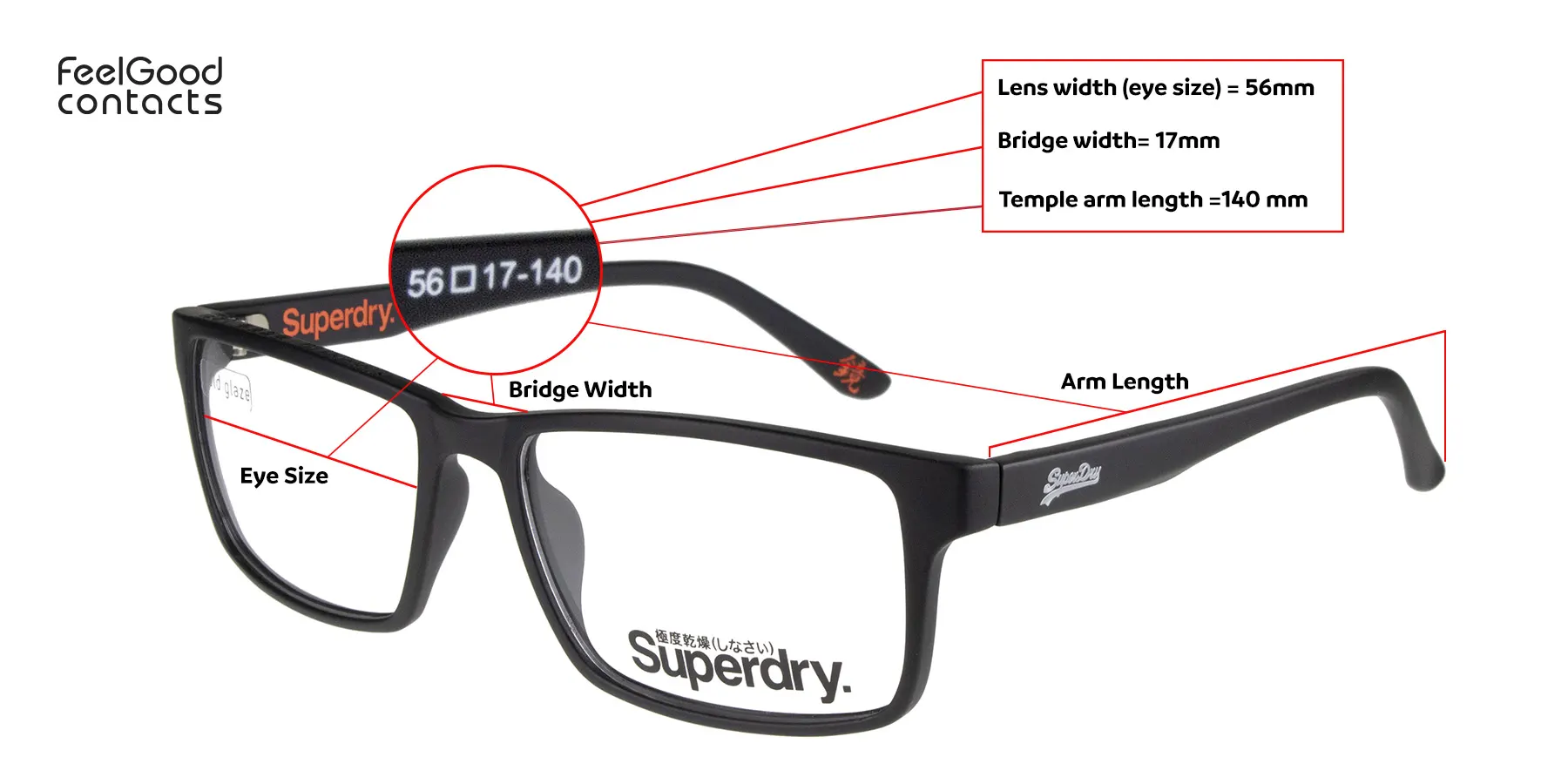
Please note you can have a leeway of 2-3mm on each lens width/eye size measurement and the temple arm length. For the bridge width, you have a leeway of 2mm.
What do my glasses measurements mean?
The measurements of your glasses are the dimensions of the frame, typically written in millimetres. The first number shows the diameter of the lenses. The second number indicates the width of the bridge (across your nose) and the third number shows the length of the temple/arms. Here is a short guide on how to understand these numbers.
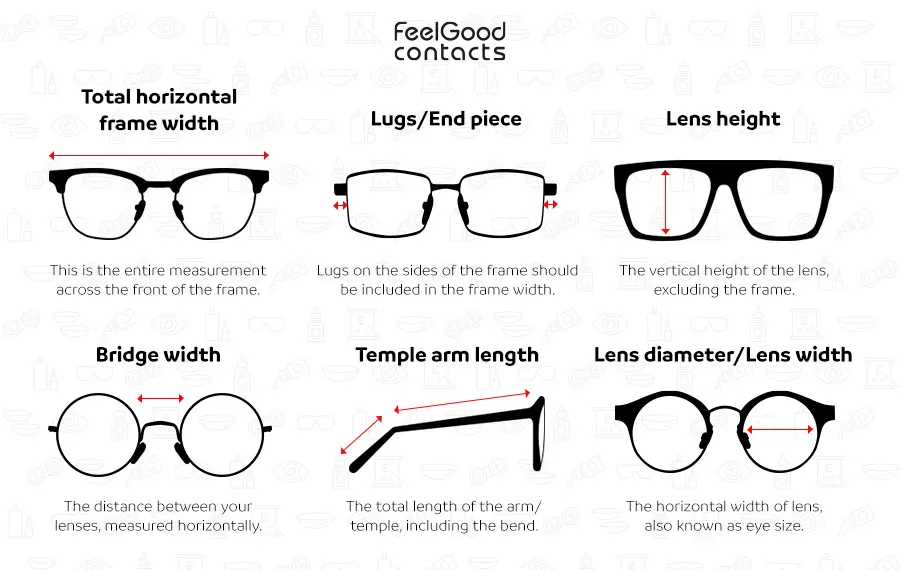
Top Tips for glasses measurements
These top tips for glasses measurements will ensure you get the best fit.
Frame Width
When measuring the frame width, make sure to measure from the furthest extended points of each side and include any frame parts/lugs which stick out on the sides of the frame.
Lens height
This measurement is especially important for progressive/varifocal or bifocal lenses. The minimum recommended lens height should be no less than 30mm to have enough space for all distances, intermediate and near vision.
Bridge width
If the glasses are too tight, they will squeeze your nose and feel uncomfortable. If your glasses are the correct bridge size, they will fit comfortably on the face.
Choosing a frame which has adjustable nose pads will allow you to conduct different adjustments/modifications, resulting in a more comfortable fit.
They range from 14mm to 23mm.
Temple arm length
This measurement is always the biggest number. The standard and most common length sizes are 135, 140 and 145mm.
You'll know if the temple size is right for you if the arms are long enough to sit comfortably over your ears.
- Start by measuring from the hinge (metal joint which attaches the frame front to the temple) to the point where the temple begins to bend downwards.
- Next, measure the length of the drop, which is from the top of the bend to the bottom end tip.
- Adding both measurements will give you the total temple arm length.
Lens diameter/Lens width
The width of the lenses is mostly determined by the design/shape of your frame.
It is best to choose a small frame which has an eye size of 50mm or less for high prescriptions with sphere power (sph) of +/- 5.00D or more.
Eye size usually ranges from 46mm to 62mm in adult frames.
If the measurements are not included on your glasses, fear not. You can measure the dimensions yourself with a millimetre ruler.
Out of all the measurements, the crucial one is the frame width. You won’t be able to find this written on the frame/temple arm. However, see our glasses frame sizes below to help you choose the right size and measure the frame width.
Glasses frame sizes at Feel Good Contacts
At Feel Good Contacts, we stock four different frame sizes; small, medium, large and extra large. The measurements for our frame sizes are detailed below.
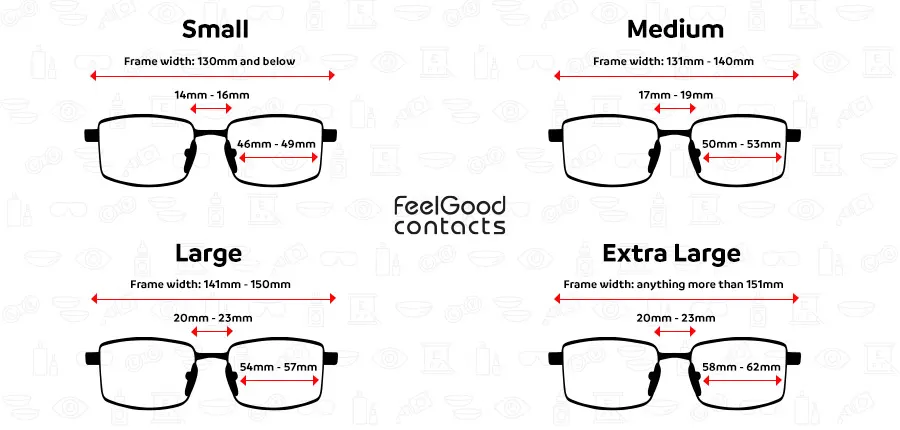
To ensure that you select the best fitted glasses for you, we recommend that you compare the measurements on your own frame to these images above.
How your glasses frames should fit your face?
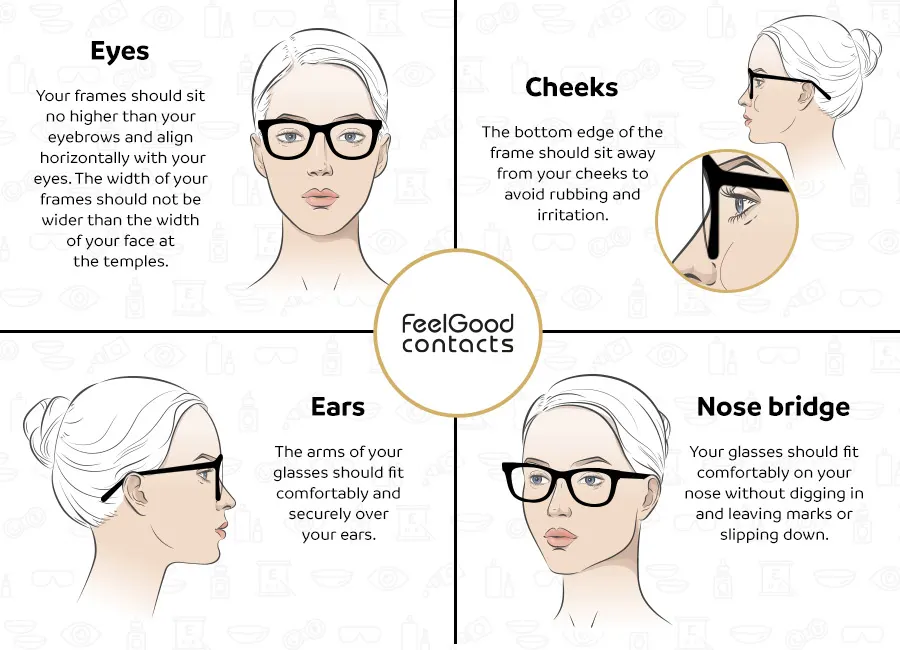
Issues with ill-fitting glasses
Glasses that don't fit properly will slide off of the face and feel uncomfortable. Your vision also may not be as good as when looking through the centre of the glasses.
With the correct measurements for your frame, you'll be able to find a pair of glasses perfectly fitted to you. You can order your glasses online directly from Feel Good Contacts and have them sent to you within a week.
Quick links:
How to choose the best lenses for my prescription?
How do I read my glasses prescription?
How to tighten my glasses?
Disclaimer: The advice in this article is for informational purposes only and does not replace medical care or an in-person check-up. Please check with an eyecare professional before purchasing any products or remedies. For information on our article review process, please refer to our Editorial Policy.

 Offers
Offers Account
Account
 Favorite
Favorite
 Basket
Basket

 OFFERS
OFFERS










